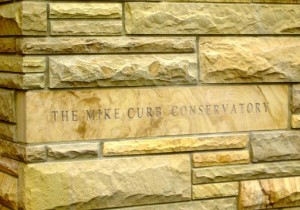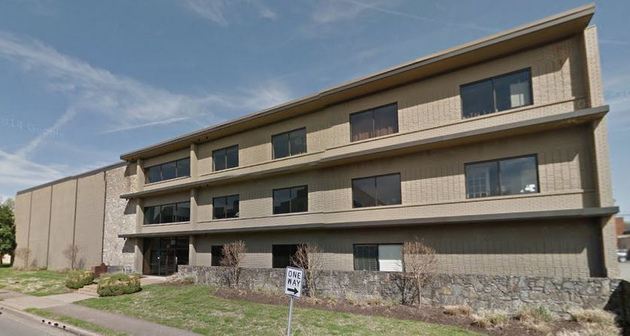Mike Curb’s Presence Sullies Studio ‘A’ Preservation
Let’s just start this off by drudging the big elephant right out in the middle of the room and shining a big ‘ol spotlight on it. Mike Curb, Herr Führer of Curb Records—the man who has made millions off of the indentured servitude of many of country music’s most famous names, and manipulated consumers with repackaged releases and Greatest Hits bamboozels—has taken his blood money, his ill-gotten gains, and thrown them behind the much-ballyhooed preservation of Music Row’s historic Studio ‘A’ in Nashville, and we all should feel deeply conflicted about it.
It was announced on Tuesday (12-23) that the deal to purchase Studio ‘A’ with the intent to preserve the historic property had finally closed, and that two unexpected, and previously-unannounced investors were joining preservationist Aubrey Preston as partners in the preservation effort. Studio ‘A’, originally built by Chet Atkins and Own Bradley nearly 50 years ago to be the bigger brother of the older Studio ‘B’ right beside it, was sold to a developer earlier this year called Bravo Development, who let it be known their intent was to bulldoze the building that so many greats had recorded hits in over the years to build a condominium complex and a music-themed restaurant. But preservationist Aubrey Preston pulled off an 11th-hour deal to purchase the property for $5.6 million in an attempt to usher it into a more permanent state of preservation.

But Preston may have not been in the position to throw $5.6 million around on his own, and made it known from the very beginning that it wasn’t his intent to own the building himself forevermore, but shepherd it into more permanent hands who could see its preservation into the future. To help buffer the deal, Preston brought on two more partners at closing, and now all three own the building in equal share. The first Preston partner is a healthcare business executive named Chuck Elcan (healthcare is Nashville’s other big industry), and the other is the aforementioned Mike Curb.
Nobody should act surprised that Mike Curb came on board as part of the preservation. In fact, you’d have to have your head in the sand to not see it coming. Mike Curb has worked to preserve other historic places in Nashville, including Studio ‘B’ which like is planned for Studio ‘A’, is now in safe hands to be protected for all time. Curb has also thrown his money around to help build other Nashville landmarks, especially on the Belmont University campus, and as part of the Country Music Hall of Fame.
In August, when some were focused more on being angry about what seemed to be the impending fate of Studio ‘A’ as opposed to crafting pragmatic solutions, Saving Country Music posted an essay about the best ways to preserve Studio ‘A’ (which might have been the least-read article posted on the site the entire year), and observed, “Some large entrepreneurial spirit with an established footprint on Music Row such as Mike Curb or Scott Borchetta could buy the property. It seems like this would be the best option to see the long-term preservation of Studio ‘A’.” It was also pointed out that Curb had already worked with Belmont University on numerous cohabitated properties on Music Row.

But how is the conscientious music lover—many of whom overlap their passion for preserving Studio ‘A’ with the desire to see reform in the way some of Music Row’s major labels do business—supposed to feel about Mike Curb’s involvement in this matter? Meanwhile it can’t be taken for granted that everyone knows about all the ill will Mike Curb has sewed over his sullied career, especially in the last decade plus.
When Hank Williams III began to make a public nuisance about how Curb Records was treating him in the mid 2000’s, many thought it was simply the sour grapes of a foul-mouthed punk. Since then, a parade of artists have come out complaining about how the label has treated them, trainwrecking their careers from their ill-conceived policy of waiting five years between releases, resulting most notably in a massive barrage of lawsuits back and forth with Tim McGraw, who Curb Records did everything they could to keep him perpetually signed to their label by refusing to release his final album, and instead released one Greatest Hits album after another. McGraw, like Hank Williams III, eventually defeated Curb Records in court, but not after great damage had been done to his career.
LeAnn Rimes, Hank Williams Jr., Jo Dee Messina, Lyle Lovett, Clay Walker, and even going back to The Beat Farmers and Frank Zappa, they all have legitimate beefs against Mike Curb and the way they were handled by the country music mogul.
READ: The Official Mike Curb Rap Sheet of Transgressions
 In 2011, Saving Country Music asked if Nashville should be careful of its Mike Curb legacy, pointing out that many important buildings around the city now bear Mike Curb’s name and what this might mean as he continues his unscrupulous business practices. Just last month, yet another Curb Records manipulation was unearthed when it was revealed the label would be releasing yet another round of regurgitated releases from Tim McGraw and Hank Williams III in the hopes of misleading the public into buying previously-released material repackaged to look new—something Curb has been doing for years from the two artists.
In 2011, Saving Country Music asked if Nashville should be careful of its Mike Curb legacy, pointing out that many important buildings around the city now bear Mike Curb’s name and what this might mean as he continues his unscrupulous business practices. Just last month, yet another Curb Records manipulation was unearthed when it was revealed the label would be releasing yet another round of regurgitated releases from Tim McGraw and Hank Williams III in the hopes of misleading the public into buying previously-released material repackaged to look new—something Curb has been doing for years from the two artists.
 At the same time, it is a good thing that Studio ‘A’ is being preserved. The concerns about Mike Curb’s philanthropy have never been about the specific targets of it, which all appear to be worthy benefactors, and it’s not as if he doesn’t deserve any credit for making these types of charitable moves with his money. The bigger concern is where that money is coming from, and if it’s worth receiving it if a stipulation to take it is engraving the name of Mike Curb—and all the baggage that comes with it—on the edifice.
At the same time, it is a good thing that Studio ‘A’ is being preserved. The concerns about Mike Curb’s philanthropy have never been about the specific targets of it, which all appear to be worthy benefactors, and it’s not as if he doesn’t deserve any credit for making these types of charitable moves with his money. The bigger concern is where that money is coming from, and if it’s worth receiving it if a stipulation to take it is engraving the name of Mike Curb—and all the baggage that comes with it—on the edifice.
Just to clarify, there’s no plan at the moment to rename 30 Music Sq. West “Mike Curb’s Studio ‘A'” or any other such permanent homage to his involvement in this preservation effort. There’s a good chance that by the time the building finds its eventual permanent ownership environment, Mike Curb won’t even be involved. Nonetheless, the legacy of Mike Curb is not one of a few public feuds and personal grudges. It is of a legacy of the purposeful manipulation of artists which has seen Curb Records shed talent at a record pace, despite the label’s aggressive, and many times illegal retention practices, and then taking the money Curb made through such practices to donate to private, charitable projects to help etch a different legacy moving forward.
Like the preservation of Nashville’s historic places themselves, the legacy of Mike Curb, which only continues to grow more dubious by the month, should be considered when looking at what the legacy of Music City will be moving forward. Mike Curb’s money is as green as anyone’s, but his name is tarnished brown. And Nashville’s institutions should ask if they want that stain sullying their most historic and important places.



December 27, 2014 @ 12:30 pm
Shame on Mike Curb for doing stuff like this and buying ‘RCA Studio B’ and then donating it to the Country Music Hall of Fame and preserving history. Just to let ya know Trigger, not all record executives in Nashville are evil.
December 27, 2014 @ 12:45 pm
Let’s please not characterize this as some reactionary knee jerk opinion simply based off a blind hatred for all things corporate and mainstream. I think I went out of my way to enumerate many of the specific instances of malfeasance by Mike Curb and Curb Records, and linked to other more detailed archives of grievances levied against him over the years. I have probably written 20+ articles over the last seven years citing details that can be factually corroborated from other sources about the type of unscrupulous practices Curb Records has engaged in that goes much beyond its peers on the Music Row campus. Don’t take my word for it, read the testimony of Tim McGraw, LeAnn Rimes, Hank Williams III, Hank Williams Jr., Jo Dee Messina, Lyle Lovett, Clay Walker, and The Beat Farmers. Also feel free to read the legal judgements handed down in courts against Curb Records and in favor of these artists.
This is not a smear job, this is simply my attempt to offer some perspective in this matter. I understand if someone wants to overlook all of these instances of how Mike Curb has been able to amass his war chest by manipulating artists because of the good his money is doing now. That is a fair, and understandable perspective. But please don’t paint MY perspective as being anything but an informed, and concerned opinion.
Also appreciate that I not only anticipated Mike Curb’s involvement in this preservation effort, I called for it in August. I am not angry, I am conflicted.
December 27, 2014 @ 1:21 pm
Hmmm…..buying an old historic studio in Nashville and making it available to the public for enjoyment and learning: now THAT’S SAVING COUNTRY MUSIC! Why would you take something good for country music’s history and bring up all this bad stuff? Yes, I know about the grievances from the Curb Artists. Tommy Barnes is a very good friend of mine and enlighted me to all the Tim McGraw stuff that’s never been made public. It just sucks following this website and when this action should be praised, he gets a bad rap. Just be glad somebody is trying keep some of the history alive. Why be conflicted about it? What’s really funny: Tim McGraw went from a”bad guy” to the worst guy for country music when he left Curb and signed with Big Machine. There’s your irony!
December 27, 2014 @ 1:49 pm
The actions of Aubrey Preston and the preservation of Studio ‘A’ have been nothing but praised on this site:
https://www.savingcountrymusic.com/who-is-the-man-who-saved-studio-a
But I felt like like giving a voice to those who are concerned about Mike Curb’s involvement in this process.
” Why be conflicted about it?”
Because, as I iterated above, I think the case can be made that Mike Curb has amassed his wealth through spurious and sometimes illegal business practices, and then used that wealth to ensure his legacy by etching it into the edifice of buildings all across Nashville. Yes, I’m happy that certain buildings are being built and preserved at the behest of Mike Curb, but if he got that money by manipulating artists, I think this needs to be entered into the conversation before showering him with unchecked praise.
And yes, sonically Scott Borchetta has been much worse for country music. But he also is the label owner who extends the greatest creative latitude to his artists—something Mike Curb symbolizes the antithesis of.
Look, these are not black and white matters. You can praise the deed, but still question the motivations and where the money came from.
December 28, 2014 @ 5:00 pm
I think you need to look farther back than Scott for sonically killing “country” music. Chet Atkins created the “Nashville pop sound” proper blame should be placed on his head for taking the “hillbilly” out of Nashville.
Personality I don’t care if that Curb guy is a douchebag, he is doing something by saving studio A, I know when I visited studio B I didn’t think “this is the place ChetvAtkins killed country music” I took it for what it was worth. A historical studio that many artist I still enjoy recorded at.
December 28, 2014 @ 5:07 pm
The conversation was about the difference between Mike Curb and Scott Borchetta. Obviously there’s an entire separate thread about Chet Atkins, Owen Bradley, Billy Sherrill, and the whole development of the countrypolitan sound.
December 27, 2014 @ 1:24 pm
And why did you pull the 1st reader comment on this story?
December 27, 2014 @ 1:40 pm
I pulled the first comment because it included personal threats against someone, which is completely against the comment policies and spirit of this site.
December 27, 2014 @ 2:01 pm
Sorry about that Trigger. Sometimes my leash comes undone. It was intended as a threat, but I can see how it could be taken that way.
December 27, 2014 @ 2:02 pm
Damn! Wasn’t!!! I can’t type on a phone…
December 27, 2014 @ 3:02 pm
No worries Sam. With a sensitive subject like this, I felt like there was a need to be extra cautious, esp. since yours was the first comment.
December 27, 2014 @ 2:20 pm
I know they’re not top tier like Hank II and McGraw, but can we add Heidi Newfield and Trick Pony to list of artists with legal run ins with Curb? I’m still a fan.
December 27, 2014 @ 3:04 pm
That’s the thing. You can pretty much name off any Curb artist, and their stints with the label ended in bad blood and court action. About the only exception might be artists who’ve not be with them long enough yet to be manipulated, Rodney Atkins who re-signed with them amongst domestic violence charges, and their cash cow Lee Brice.
December 27, 2014 @ 7:03 pm
Isn’t that Mo Pitney guy signed to Curb?
I hope they don’t derail his career.
December 27, 2014 @ 5:01 pm
Mike Curb is the C. Montgomery Burns of Nashville, Tennessee.
December 27, 2014 @ 6:18 pm
This deal is rather appropriate in an ironic sense. RCA Nashville back in the heyday of Studio A was every bit as tyrannical as Curb Records today. If anything, RCA interfered probably even more than Curb in the songwriting and production processes.
December 27, 2014 @ 7:00 pm
Waylon proved that!
December 28, 2014 @ 6:36 am
Trigger, das gelt schtinct nicht – old Jewish proverb, gold has no smell. Maybe Curb is trying to atone? OK, I seriously doubt that, but the upshot is that the studio is saved.
Incidentally, I was told years ago that health, insurance and religious publishing were all more important economically to Nashville than country music. JC
December 28, 2014 @ 8:40 am
I believe the healthcare industry is the #1 sector of the Nashville economy. It is interesting that the ownership is now made up of representatives from Nashville’s respective major industries.
December 28, 2014 @ 12:34 pm
If you get past his questionable business practices Mike Curb has had an amazingly diverse career. Not many people have been as involved as he has been in so many different genres and at so many different levels of the industry.
Doesn’t excuse the piss poor way he has treated the acts on his label but it’s still a pretty interesting career.
December 29, 2014 @ 12:47 am
I just want to second what KathyP said. Trick Pony had their third release “R.I.D.E.” ready to be released and when they gave interviews about it, you could tell they were frustrated at all of the delays in getting it released. Also, later on Heidi Newfield had a hit with her solo cd, and it would have been a good time to release the farewell Trick Pony show from the Wildhorse Saloon to capitalize on that, or at least have some follow-up Heidi solo stuff in the works for another cd. There were a few digital singles, then she was signed to Sidewalk Records (a division of Curb, I believe), then next thing I hear, Trick Pony is back together (I saw them on March 14th here in Indianapolis this year), they were talking about a new cd produced by Ira Dean, then the next thing, Ira Dean is not with Trick Pony. I have no idea if this is due to a record company wanting their own producer, or if Trick Pony is even still signed to Curb. I always thought that Trick Pony should have been bigger, they could do that rock/country thing, but also straight country such as “Stand In The Middle Of Texas”.
December 31, 2014 @ 2:23 pm
Geez Trigger, don’t sugarcoat it – give it to us straight.